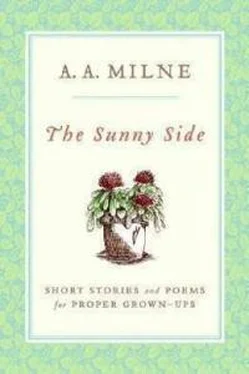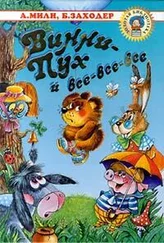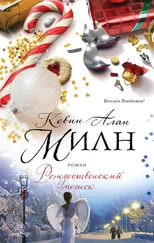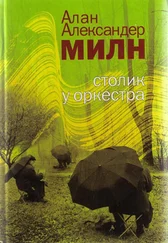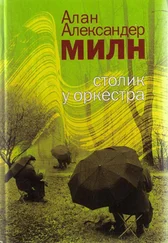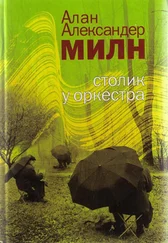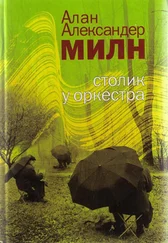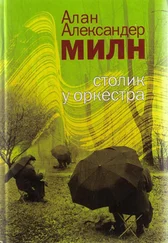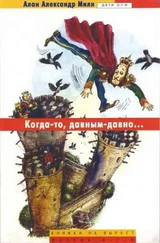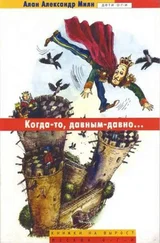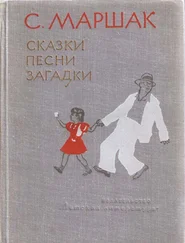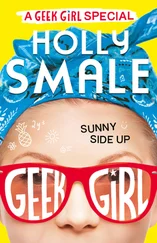Though so little was known of him, the story of his prowess was on every lip. An officer from his regiment who had gone out alone to an observation post had been surrounded and cut off by the enemy. Threatened on all sides by guns and bombs of every calibre, he had prepared to sell his life dearly. To attempt a rescue would have been madness; even the most reckless Town Major would have blenched at the idea; and the Regiment, in the comparative safety of their trench, could only look on helplessly.
All but Private Smithlord. Hastily borrowing the Colonel's horse, he urged the gallant animal up the trench and away over the top. And then began a race such as had never been seen at Epsom or Melton Mowbray.
"Gad," said a sporting subaltern, who in peace days had frequently entered for a Derby sweepstake at the National Liberal Club, "the beggar can ride—what?"
An answering cheer rang out from all ranks.
Over wire entanglements and across shell holes dashed Private Smithlord, firing rapidly with his revolver all the while. Nearer to the ill–fated officer he drew, and then suddenly he was in the midst of the enemy. Lashing out right and left, he fought his way to the man he had come to rescue, pulled him up behind him and, amidst a hurricane of bullets, charged back to the British lines. Nor did he pause till he arrived at the Colonel's dug–out.
"I have brought him back, sir," he said, and fainted. When he awoke it was to find himself in the Xth bed of the Yth Base Hospital.
And who is it in the next bed? It is the officer whom he rescued. Do we recognize him? Alas, no. Although unwounded by the enemy, the exposure of that terrible day had brought on a severe attack of mumps. We cannot recognize him. But the nurse assures us that it is our old friend, Major Murgatroyd.
"A visitor to see you," said the nurse, coming in and waking Private Smithlord up.
"Can't you say I'm out?" said Smithlord, expecting it was another foreign decoration and wondering what language he would have to speak this time.
"It's an English Colonel," said the nurse.
Smithlord saluted and begged the nurse to show him up at once. In another minute Colonel Blowhard had entered.
"I want to thank you," said the Colonel, "for so gallantly rescuing an old friend of mine—Major Murgatroyd, belonging to the Nth Battalion Blankshires, but now attached to the Qth."
Smithlord could hardly repress a start. In the excitement of the moment he had not recognized the features of the man he had saved. It was his old rival.
"It is curious," went on the Colonel, "that in features you resemble another old friend of mine, Lord Smith."
"My name is Smithlord, sir."
"Ah! Any relation?"
"None," said Smithlord, crossing his thumbs under the bedclothes.
"Do you mind ringing the bell?" he went on, feeling that at all costs he must turn the conversation. "I think it is time for my medicine."
In answer to the Colonel's ring a nurse appeared.
"Nurse Brown has just gone out," she said. "Can I do anything for you?"
"Good Heavens! Rosamund!" cried the Colonel.
"Yes, father, it is I," she replied simply. "I have come to France to find the man I love."
"Murgatroyd?" said the Colonel. "But this gallant fellow was the man who—By the way, let me introduce you. Private Smithlord, my daughter, Rosamund."
The two looked at each other face to face. The intuition and ready wit of the woman pierced the disguise which had baffled the soldier.
"Father," she cried, "it's not Smithlord, it's Lord Smith. George!"
"Rosamund!" cried George. We cannot keep the secret any longer from our readers; it was Lord Smith.
"Tut, tut, sir, what is this?" said the Colonel. "I turned you out of the Regiment three weeks ago. What the deuce," he said, for, like all military men, he was addicted to strong language—"what the deuce does this mean?"
"I was innocent, sir."
"Father, he was innocent."
"He was innocent," said a hollow voice from the next bed.
In amazement they all looked at the officer lying there.
"Rosamund," he cried, "am I so greatly changed?"
The Colonel handed him his pocket mirror.
"Yes," sighed the Major, "I understand. But I am Major Murgatroyd."
"Major Murgatroyd!" they all cried.
"This gallant fellow here, whom I now know to be Lord Smith, saved my life; I cannot let him suffer any longer. It was I who hid the secret document in his pocket. I did it for love of you, Rosamund." He held out his hand. "Say you forgive me, my dear Lord Smith."
Lord Smith shook his hand warmly.
But little more remains to tell. A month later our hero was back in England. Fortunately the Quartermaster had kept his buttons; and in a very short time he was back in the dear old uniform, and the wedding of Second–Lieutenant Lord Smith to Rosamund Blowhard was one of the events of the season.
And what of Major Murgatroyd? He has learnt his lesson; and as commandant of a rest camp on the French coast he is the soul of geniality to all who meet him.
The Ballad of Private Chadd
I sing of George Augustus Chadd, Who'd always from a baby had A deep affection for his Dad— In other words, his Father; Contrariwise, the father's one And only treasure was his son, Yes, even when he'd gone and done Things which annoyed him rather.
For instance, if at Christmas (say) Or on his parent's natal day The thoughtless lad forgot to pay The customary greeting, His father's visage only took That dignified reproachful look Which dying beetles give the cook Above the clouds of Keating.
As years went on such looks were rare; The younger Chadd was always there To greet his father and to share His father's birthday party; The pink "For auld acquaintance sake" Engraved in sugar on the cake Was his. The speech he used to make Was reverent but hearty.
The younger Chadd was twentyish When War broke out, but did not wish To get an A.S.C. commish Or be a rag–time sailor; Just Private Chadd he was, and went To join his Dad's old regiment, While Dad (the dear old dug–out) sent For red tabs from the tailor.
To those inured to war's alarms I need not dwell upon the charms Of raw recruits when sloping arms, Nor tell why Chadd was hoping That, if his sloping–powers increased, They'd give him two days' leave at least To join his Father's birthday feast … And so resumed his sloping.
One morning on the training ground, When fixing bayonets, he found The fatal day already round, And, even as he fixed, he Decided then and there to state To Sergeant Brown (at any rate) His longing to congratulate His sire on being sixty.
"Sergeant," he said, "we're on the eve Of Father's birthday; grant me leave" (And here his bosom gave a heave) "To offer him my blessing; And, if a Private's tender thanks— Nay, do not blank my blanky blanks! I could not help but leave the ranks; Birthdays are more than dressing."
The Sergeant was a kindly soul, He loved his men upon the whole, He'd also had a father's rôle Pressed on him fairly lately. "Brave Chadd," he said, "thou speakest sooth! O happy day! O pious youth! Great," he extemporized, "is Truth, And it shall flourish greatly."
The Sergeant took him by the hand And led him to the Captain, and The Captain tried to understand, And (more or less) succeeded; "Correct me if you don't agree, But one of you wants what ?" said he, And George Augustus Chadd said, "Me!" Meaning of course that he did.
The Captain took him by the ear And gradually brought him near The Colonel, who was far from clear, But heard it all politely, And asked him twice, "You want a what ?" The Captain said that he did not, And Chadd saluted quite a lot And put the matter rightly.
The Colonel took him by the hair And furtively conveyed him where The General inhaled the air, Immaculately booted; Then said, "Unless I greatly err This Private wishes to prefer A small petition to you, Sir," And so again saluted.
Читать дальше
